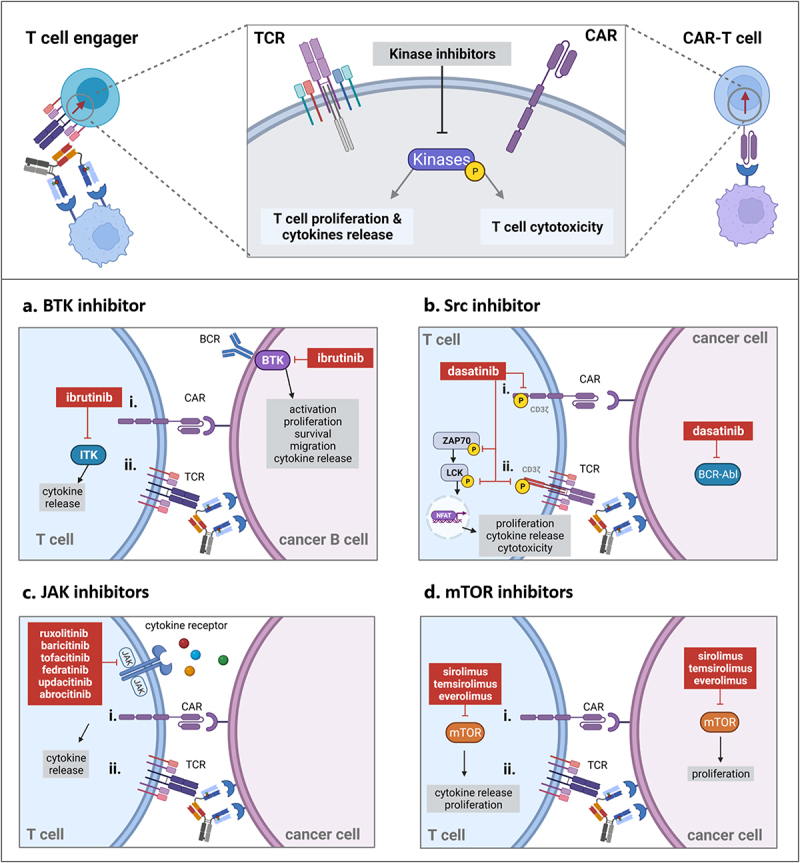Figure 3.

Kinase inhibitors target kinase-signaling pathways involved downstream of TCR or CAR activation and interfere with T cell proliferation, T cell cytokine release and/or T cell-mediated cytotoxicity. Panel A. The BTK inhibitor ibrutinib prevents phosphorylation of ITK kinases downstream of CAR (i) or TCR activation (ii) and of BTK kinases in tumor cells resulting in a reduction of cytokine release. The combination of ibrutinib with T cell engaging therapies directed against hematological tumors may increase treatment efficacy while preventing the risk of CRS. Panel B. Dasatinib blocks CD3ξ, ZAP70 and Lck kinases phosphorylation and NFAT-mediated gene transcription resulting in a reversible switch-off of T cell functionality for CAR-T cell (i) and T cell engagers (ii). BCR-Abl expressed in leukemia cells is a target of dasatinib. Dasatinib may be combined with T cell engaging therapies directed against acute lymphoblastic leukemia to decrease incidence of CRS. Panel C. JAK inhibitors prevent JAK phosphorylation downstream of various cytokine receptors and can reduce CAR T cell (i) or CD3 bispecific antibody-induced cytokine release (ii). They prevent cytokine release while retaining the efficacy of T cell engaging therapy. Panel D. mTOR inhibitors prevent mTOR signaling downstream of CAR (i) or TCR activation (ii) as well as mTOR signaling in tumor cells resulting in a reduction of cytokine release and cell proliferation. mTOR inhibitors retain cytotoxic properties of T cells and may be combined with T cell engaging therapies in indications where they exert direct anti-tumor efficacy. Created with BioRender.com
